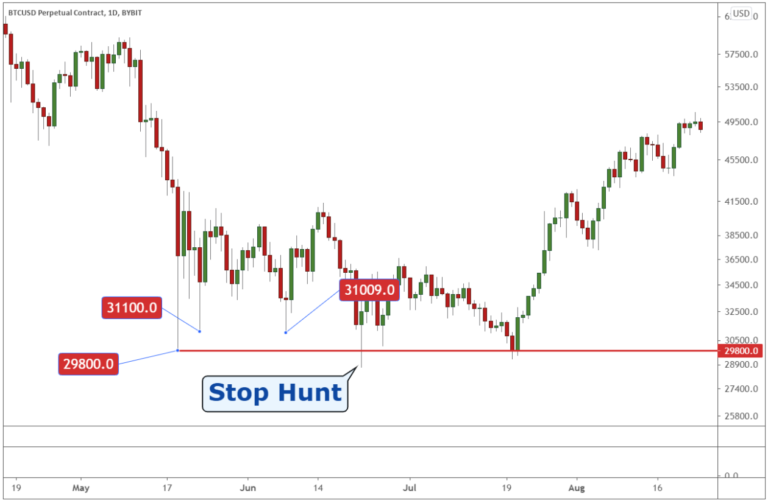Despite Bybit exchange showcasing a more complex API key configuration interface compared to peers like Binance and KuCoin, its design remains user-friendly. Some copy traders may find it a bit intricate. This article will thus shed light on the Bybit API key configuration process specifically for copy trading within both spot and derivative markets. It will cater to various player’s needs, from traders to investors (also known as copy traders, clients, followers, and more). Now, before diving into the practical aspects, it’s essential to understand what APIs are and what comprises API keys.
Demystifying APIs and API Keys
“Application Programming Interface”, or more commonly known as API, acts as the crucial bridge that fosters direct communication between multiple software applications. An easily understandable analogy is the role of a user interface, which allows humans to interact seamlessly with computers or other digital devices. Similarly, APIs enable different software and applications to ‘talk’ to each other, exchange data, and carry out tasks.
Depending on their design and the purpose they serve, APIs can execute a single function or a multitude of them. For instance, they can enable a software application to access the features or data of an operating system, application, or other services.
The history of API connections is quite rich, dating back to the 1940s. However, during those early years, they served very different purposes, quite far removed from their current applications. The term “API” only emerged in the technological lexicon during the 1960s and 70s.
In today’s digital age, API connections predominantly refer to Web APIs, which facilitate a communication channel between computers leveraging the power of the internet. Essentially, they form the framework for building HTTP services that can be accessed by different applications on diverse platforms.
The Role of API Keys
API keys further complement the functionality of APIs. Acting as a unique identifier, an API key is used to control and monitor how the API is getting utilized. It serves as a secret authentication token, providing vital security for restricting access and protecting sensitive data from unnecessary exposure.
API keys are particularly crucial in the arena of digital trading platforms. They enable a secure connection between the exchange platform and the trader’s software. In essence, an API key can grant permission to the trading software to carry out actions such as place buy or sell orders, access real-time trading data, or even automate trading strategies based on pre-set rules.
The possibilities offered by API keys within the crypto asset management industry are vast and continually evolving, driving automation and efficiency to new heights. The rest of the article will delve deeper into these possibilities, particularly focusing on Bybit’s API key configuration for copy trading. A guide is provided to navigate both the spot and derivative markets, catering to the needs of both traders and investors.
Decoding API Applications in Cryptocurrency Space
API connections find extensive use across a broad spectrum of cryptocurrency-centric platforms and applications, encompassing digital wallets, exchange platforms, and more. They enable a gamut of operations, starting from extraction of basic information like price indices to executing proportional trade replication across different exchange accounts, or even initiating cryptocurrency transactions.
API keys act as the passport to these operations, enabling the request for particular actions and granting access. Let’s look at specific examples within the context of Bybit and Finestel:
API Connections for Read-Only Traders’ Accounts
Let’s say a trader on Finestel creates a ‘read-only’ API key on Bybit and customizes its access restrictions as per their preferences—this is essentially the trader defining the level of access they want to grant Finestel to their Bybit account through the API key.
API Connections for Read-Write Traders’ Accounts
Meanwhile, ‘read-write’ (commonly known as ‘trade-only’) API keys on Bybit guarantee additional access to Finestel. These keys not only enable the reading access but also allow Finestel to place/cancel orders or even trade on the trader’s Bybit account.
Again, Bybit users enjoy the flexibility to extensively customize their API keys to their needs. However, unlike ‘read-only’ API keys, ‘read-write’ API keys permit Finestel to execute (place/cancel/modify) trade replications from the copied traders’ Bybit accounts.
API keys also find use in other contexts like withdrawals, although Finestel doesn’t require this. As a note of caution, remember that whoever or whatever holds the withdrawal API key to your exchange account potentially has access to your funds.
Most service providers in the industry, including copy trading bots and portfolio trackers, require read and trade API access, either to extract data from your exchange account or trade on it.
Exploring the Benefits of Linking Bybit and Finestel
Combining Bybit API Keys and Finestel results in a powerful tool for Automated Crypto Asset Management. Let’s delve deeper and understand what Finestel Pro is and how pro traders harness its potential for managing their crypto portfolios.
The marvel of modern technology, API keys, and connections has opened up a world of possibilities in crypto asset management. They serve an instrumental role in streamlining trading and investment activities. Bybit, with its comprehensive API key customization options, provides an excellent platform for both novice and professional traders to explore these possibilities.
Staying informed about how API keys work and how to use them appropriately can make a significant difference in your trading experience. As the world of digital trading continues to evolve, mastering this tool will ensure you stay at the forefront of this digital revolution.
Understanding Bybit’s Read-Only API Permissions
Configuration of API permissions is a crucial step in the process of connecting your Bybit account to Finestel. Bybit offers multiple options relating to different trading and wallet operations. Let’s explore each of these permissions and their significance within the Finestel system:
- Contract: Checking this option provides Finestel the ability to read and replicate your derivative orders and positions on the accounts of investors. This option is vital to executing proportional trade replication and generating reporting data;
- USDC Contracts: Finestel does not support trading in USDC; hence, this option is not required for Finestel users;
- Derivative API V3: Enabling this permission allows Finestel to read and copy your trades for all USDⓈ Derivative contracts;
- Spot: This permission grants Finestel the authority to read and replicate your trades specifically in the Bybit spot market;
- CopyTrading: When enabled, this permission lets Finestel copy the orders you place on your Bybit spot account;
- Wallet: This section includes three options:
- The “Withdrawal” permission is not required by Finestel and Finestel Pro. It is advised not to enable this permission;
- The “Account Transfer” and “Subaccount Transfer” permissions facilitate Finestel to read and copy asset transfers between spot and derivatives accounts, including Bybit subaccounts.
- Exchange: The Exchange History permission is necessary for Finestel to collect the required data from your linked exchange account for generating reports and account statistics.
By understanding these permissions, you can tailor your API key according to your preferences and requirements, ensuring a seamless trading experience with Finestel.

Crypto Trading Signals Telegram Group
In the realm of cryptocurrency trading, access to timely and accurate information can be the key to success. This is where Crypto Trading Signals Telegram Groups come into play. These groups serve as invaluable resources for traders and investors seeking real-time market insights, expert analysis, and trading signals.
By joining a Crypto Trading Signals Telegram Group, you can tap into a community of experienced traders and analysts who share their expertise and predictions. This synergy of collective knowledge can help you make informed decisions in the volatile world of cryptocurrency trading.
Combining Bybit’s API key configuration for copy trading with the insights from Crypto Trading Signals Telegram Groups can provide a powerful toolkit for traders and investors. By leveraging these resources, you can enhance your trading strategies and stay ahead in the ever-evolving cryptocurrency landscape.
Conclusion
In conclusion, for both traders and investors using Bybit, it is crucial to select the “API Transaction” option when creating an API key, especially until platforms like Finestel are officially listed in the Bybit API management section. Users should be vigilant as the “API secret key” is displayed only once, akin to practices on other exchanges such as Binance and KuCoin. If overlooked, the key cannot be retrieved, and a new API key must be generated. Importantly, it should be noted that granting “Withdrawal API access” is not a requirement for using Finestel with your Bybit account.











